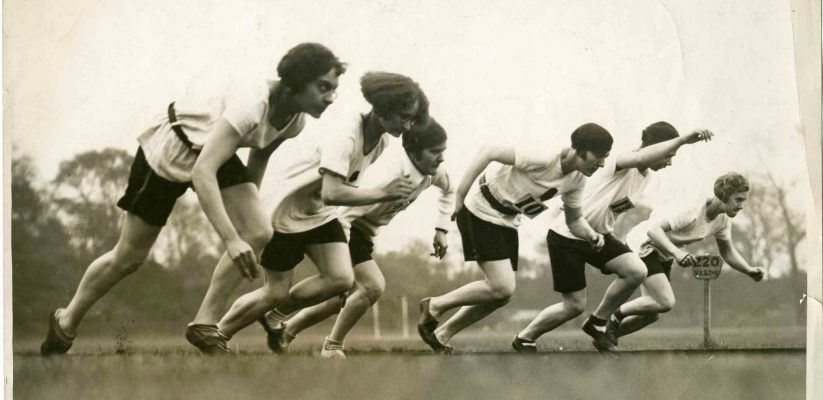Author: Luna Mia Sigle
This February, as athletes from across the world gather in Beijing to compete in the 2022 Winter Olympics, we are reminded once again that Olympic Games are more than a competition of elite sports performances. There is no clear cut between sports and politics, and worldwide events such as the Olympics also convey political gravitas. We wanted to critically examine the political implications of the history of the Games and how these intersect with human rights, equality and inclusion.
The first modern Olympic Games were hosted in Athens, Greece in 1896. 280 athletes from twelve countries competed in 43 different events covering athletics, cycling, swimming, gymnastics, weightlifting, wrestling, fencing, shooting and tennis over ten days. The French baron Pierre de Coubertin reestablished the Games as a praise to virility, and therefore women were excluded by definition, “they were not thought of, because they were unthinkable”. For decades, only men were allowed to compete in the Olympics, so in 1921 a group of women decided to create their own competition.
After her request to include women in the 1924 Summer Olympics was refused, Alice Milliat organised the first international women’s sports events: the 1921 Women’s Olympiad. 100 participants from five countries attended the five-day event held in Monte Carlo. According to senior archivist Anna McNally, who was recently invited to our podcast, the British team was comprised of students from the Regent Street Polytechnic (now University of Westminster) and the Woolwich Polytechnic (now University of Greenwich). Women from the British team travelled by train to Monte Carlo “and then they came home, they had their pictures in the papers and they went back to their day jobs” says McNally. Some of them continued competing the following years, but as was expected from society of the time they retired from competition to become housewives.
However, what might not have had a long-lasting impact in their individual lives did make great change towards the representation of women in sports. As a result of the 1921 Women’s Olympiad, the Women’s Amateur Athletics Association (WAAA) was inaugurated in 1922 at the Regent Street Polytechnic. The University of Westminster was highly involved from the start of the women’s sports movement at a time when it was considered unfeminine and unhealthy. A century later, we still celebrate these events and want to create the permanent record that was not done at the time to raise awareness of the exclusion women suffered and how they changed the world.
Mary Lines was a student at the Regent Street Polytechnic and part of that first British team who participated in the 1921 Women’s Olympiad. The British won most of the golds, and the majority of those were thanks to her. Mary Lines was an incredible athlete who gave up competition to get married in 1924. Because such things as the Olympics can inspire other disciplines, University of Westminster archivists teamed up with staff and students in the creative writing department to develop a project called Writing between the Lines. The aim of this project was to commemorate and remediate the invisibility of the ten Polytechnic women who participated in the Olympiad 100 years ago, including this early star of woman’s athletics; Mary Lines.
The Writing between the Lines project commissioned poetry working with material in the Westminster archives, drawing on research, interviews and historical material. Ten students, one for each member of the original 1921 cohort, were chosen to produce their own pieces for this project as a way to pay tributes to these amazing women. The selected students had the chance to attend workshops, work as a team on their writing and perform their work for an audience.
The Olympics are not perfect, perhaps they can never be. As we collectively gather to celebrate the global sporting elite in Beijing, both men and women, we reflect on the history of these games and, in a small way, how the University of Westminster was able to empower and inspire creative writing students while commemorating its proud history and these women’s forgotten achievements.
If you would like to watch our amazing colleague talking about Wesminster’s Lesser Known History with the Olympics on our podcast, click on the video above. Don’t forget to subscribe to Different Conversations on YouTube, listen in on iTunes, Spotify or any other channel that suits you best. You can also follow us on Twitter where we share all the most exciting news and updates.
